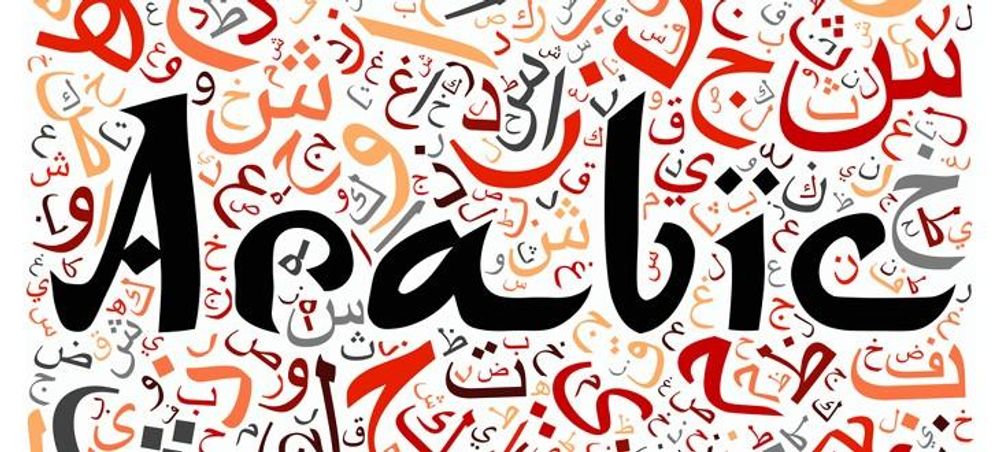Unlocking the Treasures of Arabic: A Subject Review
Explore the Arabic language, its literature, history, and global influence. Learn about key concepts, career paths, and why studying Arabic is both fascinating and rewarding.
Table of Contents
- What is the Arabic Language?
- Key Disciplines within Arabic Studies
- The Power and Importance of Arabic
- Careers with an Arabic Degree
- Skills Needed for Success in Arabic
- Top Universities for Arabic
- The Future of Arabic
- FAQ
Main Content
What is the Arabic Language?
Arabic (اللغة العربية) is a Semitic language with an ancient heritage and immense global influence. It is the official language of 26 countries across the Middle East and North Africa, a liturgical language for millions of Muslims worldwide, and spoken by large diaspora communities across the globe. Arabic boasts a rich literary tradition, a unique script, and plays a vital cultural and historical role.
Key Disciplines within Arabic Studies
Studying Arabic is a multifaceted endeavor that encompasses:
- Modern Standard Arabic (MSA): The standardized form used in writing, news, and formal speech across the Arab world. Focuses on grammar, vocabulary, reading, and writing proficiency.
- Colloquial Arabic Dialects: Mastering spoken varieties like Egyptian, Levantine, or Gulf Arabic, each with its own distinct features. This is crucial for real-life communication in specific regions.
- Classical Arabic: The language of the Quran and a vast corpus of historical, religious, and literary texts. Opens up centuries of scholarship and tradition.
- Literature: Exploring the poetic beauty, prose, and diverse genres of Arabic literature from the pre-Islamic era through the golden age to contemporary works.
- Islamic Studies: Often intertwined with Arabic, understanding the Quran, hadith (Prophet's sayings), and Islamic jurisprudence, many of which are originally in Arabic.
- Cultural Studies: Delving into the history, societies, and artistic expressions of the Arab world, where language is inseparable from its context.
The Power and Importance of Arabic
Studying Arabic unlocks a world of knowledge, opportunity, and understanding:
- A Key Global Language: Proficient Arabic speakers are in high demand due to the Arab world's economic and geopolitical importance.
- Rich Intellectual Tradition: Access a wealth of philosophy, science, poetry, and religious texts that have profoundly shaped both the Islamic world and influenced Western thought.
- Bridge to a Vibrant Culture: Understanding the language deepens appreciation for Arab music, cinema, arts, and provides unparalleled insights when travelling in the region.
- Gateway to the Islamic Faith: For Muslims, Arabic proficiency is fundamental to directly engaging with the core sources of their religion.
- Cultural Sensitivity and Understanding: In a complex world, the ability to communicate in Arabic promotes cross-cultural dialogue and breaks down stereotypes.
Careers with an Arabic Degree
An Arabic degree opens doors to diverse and impactful careers:
- Diplomacy and International Relations: Serving as a diplomat, negotiator, or analyst focused on the Middle East and North Africa.
- Business and Trade: Facilitating business deals, market research, and cultural consulting for companies interacting with the Arab world.
- Translation and Interpretation: Transforming vital documents, news, literature, and facilitating communication across Arabic-speaking regions.
- Education: Teaching Arabic as a foreign language or specializing in Arabic language pedagogy at schools, universities, or language institutes.
- Intelligence and Defense: Working in government agencies responsible for national security and strategic analysis on the Middle East.
- Journalism: Reporting on the Arab world as a foreign correspondent, providing nuanced perspectives and in-depth cultural understanding.
- Humanitarian Work: Aiding refugees and NGOs working with Arabic-speaking populations.
Skills Needed for Success in Arabic
To excel in Arabic studies, cultivate:
- Dedication: Arabic takes time to master, especially its distinct script and grammar. Consistent practice is key.
- Attention to Detail: Arabic has subtle nuances in pronunciation and spelling that can change meaning.
- Pattern Recognition: Understanding grammatical structures and root systems helps with vocabulary acquisition.
- Cultural Immersion: Seek opportunities to learn from native speakers, ideally experience life in an Arabic-speaking country.
- Adaptability: Being prepared for the differences between MSA and the diverse landscape of spoken dialects.
Top Universities for Arabic (Focus varies)
- American University in Cairo (Egypt)
- University of Oxford (UK)
- Georgetown University (USA)
- SOAS University of London (UK)
- University of Edinburgh (UK)
The Future of Arabic Let's delve deeper into why Arabic remains a language of the future:
Absolutely! Let's explore the dynamic future of Arabic in a world of global change, technological advancement, and complex cultural exchange:
Key Trends and Influences
- Demographic Shifts: The Arabic-speaking population is young and growing. This increases the language's prominence, though with the need to create opportunities within the region.
- Geopolitical Importance: The Middle East's role in energy markets, security, and regional conflicts means Arabic fluency will remain essential for global diplomacy and strategic analysis.
- Economic Growth: Developing economies in the Arab world offer business opportunities, making Arabic skills valuable alongside increasing English use for internationalization.
- The Internet and Social Media: Arabic is thriving online, with growing content creation. This shapes how younger generations use and change the language.
- Preserving Heritage in a Changing World: Tension between MSA as a unifying force and the importance of preserving regional dialects in an era of globalization.
Challenges and Opportunities
- Educational Variation: Disparities in Arabic education quality exist both within and between countries, impacting overall proficiency levels. Innovations in teaching methods are needed.
- Digitization of Arabic: Developing robust Arabic language processing tools (translation, speech recognition) is crucial for it to keep pace in the digital world.
- Science and Arabic: Increasing scientific publications in Arabic to make knowledge more accessible, and revitalize Arabic as a language of scientific inquiry as it once was.
- Translation Boom: Growing demand for quality translation both into Arabic (to access global knowledge) and out of Arabic (to share its rich literature and current affairs).
- Arabic in a Multilingual World: Finding a balance where Arabic speakers are equipped with strong foreign language skills (often English) without diminishing their native language.
The Role of Arabic Scholars and Learners
Those invested in the future of Arabic have a critical part to play:
- Linguistic Innovation: Adapting Arabic to new technological contexts, finding ways to smoothly incorporate new vocabulary for modern concepts.
- Advocacy: Promoting quality Arabic education across socioeconomic divides within the Arabic-speaking world.
- Bridging Cultures: Translation initiatives, especially focused on literary works, to increase understanding between the Arabic-speaking world and the wider world.
- Fighting Misconceptions: Arabic learners are natural ambassadors, breaking down stereotypes and showcasing a nuanced view of the diverse cultures associated with the language.
FAQs: The Future of Arabic
- Will one Arabic dialect become dominant in the future?
- Unlikely. MSA will remain the standard for writing/formal communication. But greater media exchange could see some convergence in spoken dialects, though regional pride is strong.
- Can I learn Arabic without focusing on religion?
- Absolutely! While Arabic is vital for Islamic studies, there are vast secular literary traditions, modern novels, films, etc., where the focus is on the culture and language itself.
- Is technology making it less important to learn Arabic script?
- To some degree for basic communication. But for any deeper engagement with texts, history, or the nuances of the language, mastering the script is still essential.
- What's the role of Arabic speakers outside the Middle East?
- Huge! Diaspora communities are keepers of linguistic variation, cultural ambassadors, and often the bridge-builders in business and social initiatives.




